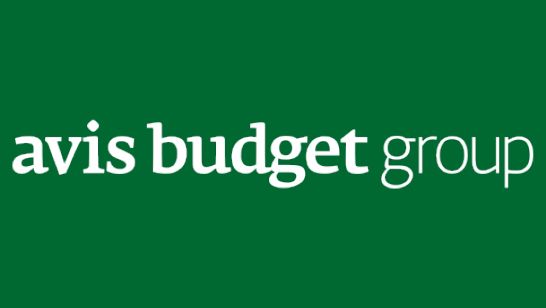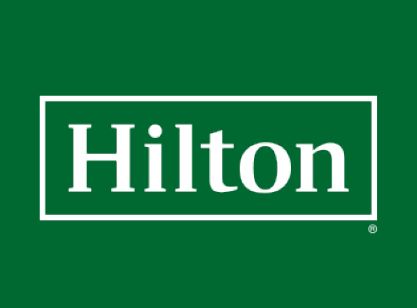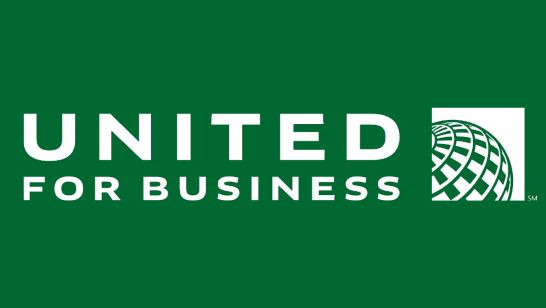HOTEL HEADACHES
Corporates increase demand for hotel sustainability data


Multiple accommodation providers told BTN that the number of corporate travel buyer requests for hotel sustainability information has soared in the past year. A few years ago, Marriott International had requests from about 20 customers for their carbon footprint with the hotel operator, said Marriott VP of sustainability and supplier diversity Denise Naguib. By 2020, it was at 100. “In the last year, during the pandemic when no one was travelling, that number has almost tripled,” she said.
Hilton Worldwide and IHG Hotels & Resorts also reported an uptick in requests from corporates for sustainability information, and what is asked for depends on where their clients are on their own sustainability paths. Questions range from what their carbon footprint is for stays to how a hotel reduces its food waste to CSR practices including diversity, modern slavery and anti-human trafficking efforts.
Most queries still focus on the E aspect of ESG – environment, social and governance, said IHG VP of global corporate responsibility Catherine Dolton. “But we are starting to get that wider focus on the ‘S’ now as well.”
Some buyers also want to know how to incentivise their travellers to be greener. “A lot of corporations today aren’t necessarily mandating their travellers stay with greener hotels, but they want to encourage that behaviour,” Dolton said.
Marriott’s Naguib agreed, adding that buyers have asked how to flag hotels that have certifications or have carbon and water data in their booking tools. “Some are force-ranking those hotels to the top of the list, ahead of price,” she said.
LACK OF STANDARDS IS A GLOBAL CHALLENGE
Buyers BTN spoke with confirmed their sustainability needs vary, but one item rang clear: The biggest challenge is the lack of an industry standard on what a ‘green’ hotel really means. There are dozens of green hotel labels around the globe, but all measure different elements of a hotel’s operations.
Further, “it is hard to ask hotels to come up with metrics,” said Hogan Lovell global travel manager David McDonald. “I’m not sure I would believe them. I don’t think there would be impropriety, but we need an agnostic industry resource. An equivalent of ISO certifications… an independent body solely tasked with the measurement of the industry as a whole, and providing a ranking score.”
In terms of making buying decisions, “it makes it difficult because there isn’t a set of standards that we can work to that would enable us to differentiate one [hotel] from another,” said PwC global business services and travel leader Mark Avery, whose company announced last year that, as a firm, they were moving to net zero greenhouse gas emissions by 2030.
To compensate for a lack of a standard, Avery first asks hotels if they participate in the Hotel Carbon Measurement Initiative, a free tool for hotels to calculate the carbon footprint per occupied room on a daily basis and on the area of meeting space on an hourly basis. It was created in 2012 by the Sustainable Hospitality Alliance (formerly the International Tourism Partnership) and the World Travel & Tourism Council in collaboration with 23 leading global hospitality companies. Its counterpart is the Hotel Water Measurement Initiative, used to calculate water usage in a hotel. About 25,000 hotels globally use HCMI and about 18,000 use HWMI, according to the SHA website.
Avery covers the UK region for PwC. He uses the UK Department of Environment, Food and Rural Affairs hotel emission factors, but he said they cover only about 30 markets. “We’ve chosen to estimate other territories based on the various factors of the countries they have put a multiplier on so we can capture and report our Scope 3 emissions,” he said. This involves looking at the DEFRA multipliers and associating the type of location, typical climate, the kind of facilities the hotel has, and then estimating a multiplier per room night per country.
In addition, Avery furnishes key providers with information on PwC’s expectations and asks them to sign on to that level of provision and have science-based targets set.
“We look for them to be on the journey toward a sustainable future and potentially net zero,” said Avery. “In order to do that, they need to be measuring.”




"We found that large hotel groups had sustainability programmes in place, but they were very different. At most, they were following the greenhouse gas protocols from a scoping point of view and what needed to be measured"
Martin Biermann, HRS chief product officer and Green Stay Initiative team leader


POTENTIAL SOLUTIONS
Corporate lodging platform HRS introduced its Green Stay Initiative in March which uses a proprietary formula for calculating a hotel’s sustainability score based on its energy consumption, water use and waste disposal – three key measurable elements buyers look for.
When the company started its project, it faced the same roadblock – the lack of an industry standard. “We found that large hotel groups had sustainability programmes in place, but they were very different,” said HRS chief product officer and Green Stay Initiative team leader Martin Biermann. “At most, they were following the greenhouse gas protocols from a scoping point of view and what needed to be measured.”
HRS looked at approximately 200 bodies and found that each basically created its own set of criteria or action plans they recommended to hotels. The most prominent one was the Global Sustainability Tourism Council, which has a comprehensive set of action plans for businesses in the travel industry, Biermann said. HRS also integrated the HCMI and HWMI into its calculation, along with EarthCheck, Green Key and unnamed other sources.
Some hotel companies countered that there are industry standards, at least for a few sustainability measurements, and Hilton’s 2020 ESG report indicates the industry is working with the World Wildlife Fund to develop a standardised waste measurement methodology.
The major hotel companies BTN spoke with all use the HCMI and HWMI tools to help provide an individual hotel’s footprint, and it is a brand standard – for all properties, managed and franchised – to provide that information. Hyatt Hotels Corp. added in a statement that along with industry peers, it participated in coordinated benchmarking through the Cornell Hospitality Sustainability Benchmarking Index. But again, each company uses additional differing factors when giving an overall picture of a property’s sustainability.
Aside from producing a carbon and water footprint using HCMI and HWMI, Naguib said Marriott also factors in waste practices and “hundreds of data points”. The company also takes into consideration seven certifying bodies, including green building programmes and green hotel certifications that meet GSTC standards.
Hilton Worldwide has LightStay, its proprietary system that measures the company’s environmental and social impact around the world, “from energy and water use to volunteer hours,” said Hilton VP of corporate responsibility Kate Mikesell. There’s also Hilton’s Meeting Impact Calculator which, based on information about a particular event, can determine the environmental footprint of that event.
Further, “all of our hotels are certified with ISO quality management, environmental management and energy management standards,” Mikesell said, adding that Hilton’s LightStay also achieved GSTC status.
IHG, which earlier this year announced its 10-year Journey to Tomorrow sustainability plan, has a system called IHG Green Engage, which is also a brand standard for hotels to measure and monitor utility consumption, Dolton said. She added that the company has its own certification for four sustainability levels, which can vary based on geography. “More widely you have questionnaires like the Carbon Disclosure Project, and various methodologies for contrasting and comparing the sustainability of hotels. There is some standardisation out there, but I do think we are seeing a greater call from customers for something that is a bit more straightforward.”
These methods are the foundation for reporting to clients and don’t even begin to capture all that the companies do on the corporate level for their own sustainability goals.
SOURCING IMPLICATIONS
Many of hotel companies’ sustainability requests come through the Global Business Travel Association request-for-proposal format, which includes 20 sustainability-related questions. But the questions could likely use an update as they don’t cover everything that buyers now look for. “Companies are really focused on more things like renewable energy,” Naguib said. “It is not one of the standardised questions, but now a lot of customers are asking about it.”
Still, regarding the GBTA questions, “[the hotels] have to self-certify,” McDonald said. “There is no one who says, ‘show me your certification.’ There is no single standard in calculating this, you have to take it on face value.”
Other buyers go directly to their national sales managers, while some come through corporate sustainability departments. What is clear is that travel buyers will increasingly ask for this information from their hotel partners, especially as more corporations are announcing their own sustainability goals.
When next sourcing hotels, “we will want documentation to prove that a property or chain has a sustainability programme, how they are measuring it, whether they have a net zero programme, and how is that being met,” said one buyer whose company has announced a net zero target.
Will the need to meet internal sustainability goals start influencing which hotels make it into corporate travel programmes? Marriott’s Naguib said she is starting to see some more mature programmes use their collected sustainability data for decision making, but buyers aren’t necessarily there, yet.
“The short answer is yes, but it will take some time,” Avery said. “At the moment it’s not appropriate to say we would not put a hotel in [our programme] just because it didn’t have sustainability information. Possibly, if there was something next door. But sometimes we are in locations where we don’t have a choice. You have to be realistic.”
For Toyota North America travel services manager Rebecca Jeffries, it will depend on her travellers. “If it’s something that 10 per cent to 15 per cent of my travellers have an interest in, it probably won’t make a huge difference in my sourcing,” she said. “But if 85 per cent of my travellers are interested in it, then yes it will.”




















